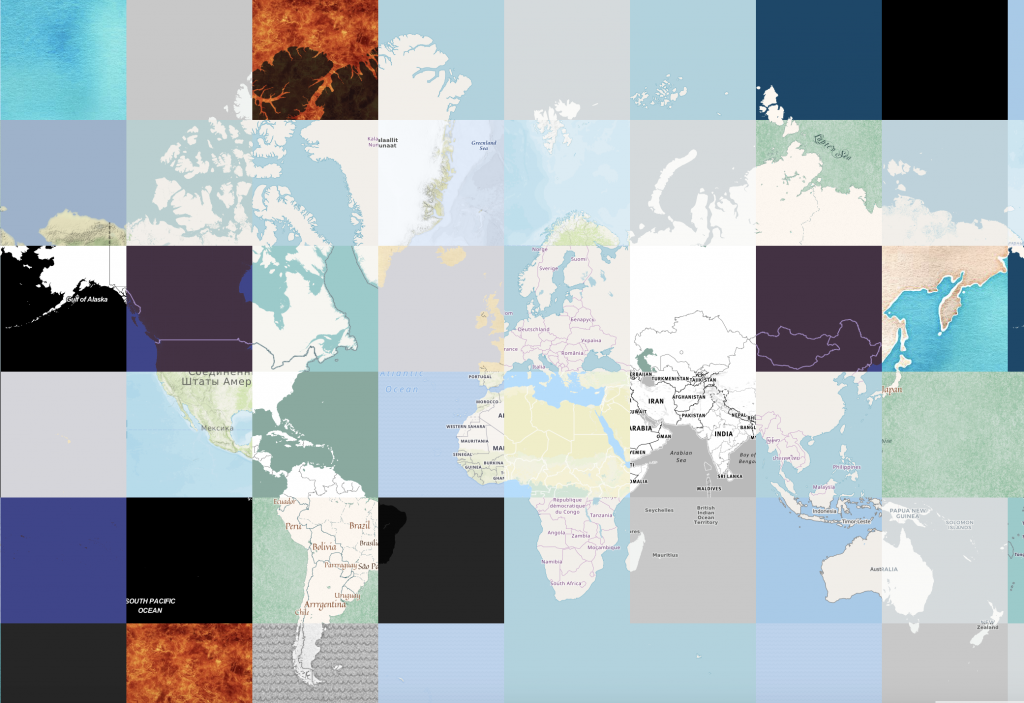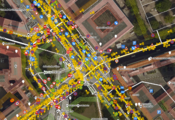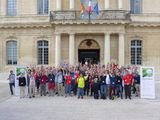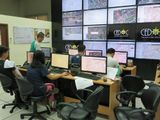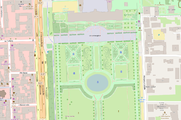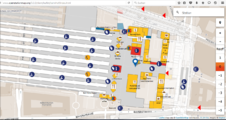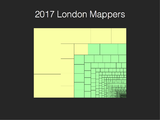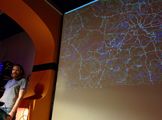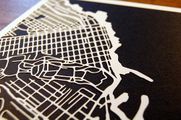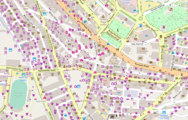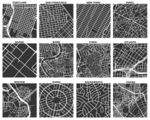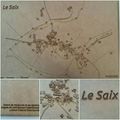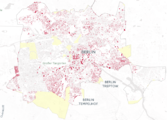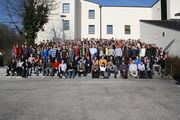
Copyright © 2019 Madi Muhlberg, CC-BY 4.0. Image modified.
OpenStreetMap was selected as the winner of the Free Software Foundation 2018 Award for Projects of Social Benefit. FSF founder and president Richard Stallman – who presented the award during the LibrePlanet 2019 conference in Cambridge, MA – mentioned that:
“it has been clear for decades that map data are important. Therefore we need a free collection of map data. The name OpenStreetMap doesn’t say so explicitly, but its map data is free. It is the free replacement that the Free World needs.”
The award was a custom-made piece of art: a golden-looking record that had on its label the four reasons why OpenStreetMap was nominated. It was accepted on behalf of the OpenStreetMap community by Kate Chapman, who went on to thank the Free Software Foundation and the large community of OpenStreetMap contributors. Kate is the chairperson of the OpenStreetMap Foundation – which supports the OpenStreetMap project – and she presented some key milestones of the project during her Sunday talk
“The FSF’s Award for Projects of Social Benefit honors projects that have taken the ideals of the free software movement and applied them to intentionally and significantly benefit society in other aspects of life. OpenStreetMap’s use of free software, freely shared data, and international grassroots collaboration has massively benefited not only the daily lives of individuals around the world but also saved lives through humanitarian uses like improved disaster response. We all owe OpenStreetMap contributors a debt of gratitude, and the FSF is happy to show our appreciation through this award”, said FSF executive director John Sullivan.
Nominations for the award were collected from the public, and then a committee made up primarily of previous winners voted between them. OpenStreetMap is in good company, with previous winners including Tor, Public Lab, SecureDrop, Library Freedom Project, Wikipedia, GNU Health, Creative Commons, the Internet Archive and others. More background information about the award is at https://www.fsf.org/awards/sb-award.
Thanks to all those who contribute to the OpenStreetMap project –
the award belongs to you!
2019-03-30 The post was updated to reflect that the award had on its label the four reasons why OpenStreetMap was nominated, and not the Free Software’s Four Freedoms, as initially mentioned.
What is OpenStreetMap
OpenStreetMap was founded in 2004 and is a international project to create a free map of the world. To do so, we, thousands of volunteers, collect data about roads, railways, rivers, forests, buildings and a lot more worldwide. Our map data can be downloaded for free by everyone and used for any purpose – including commercial usage. It is possible to produce your own maps which highlight certain features, to calculate routes etc. OpenStreetMap is increasingly used when one needs maps which can be very quickly, or easily, updated, such as ambulance services, fire brigades and humanitarian crises response.
What is the OpenStreetMap Foundation
The OpenStreetMap Foundation is a not-for-profit organisation, formed in the UK to support the OpenStreetMap Project. It is dedicated to encouraging the growth, development and distribution of free geospatial data for anyone to use and share. The OpenStreetMap Foundation owns and maintains the infrastructure of the OpenStreetMap project.
What is the Free Software Foundation
The Free Software Foundation (FSF) is a nonprofit with a worldwide mission to promoting computer users’ right to use, study, copy, modify, and redistribute computer programs. The FSF promotes the development and use of free (as in freedom) software — particularly the GNU operating system and its GNU/Linux variants — and free documentation for free software.
What is LibrePlanet
LibrePlanet is an annual conference hosted by the Free Software Foundation for free software enthusiasts and anyone who cares about the intersection of technology and social justice. LibrePlanet brings together software developers, law and policy experts,activists, students, and computer users to learn skills, celebrate free software accomplishments, and face challenges to software freedom.


